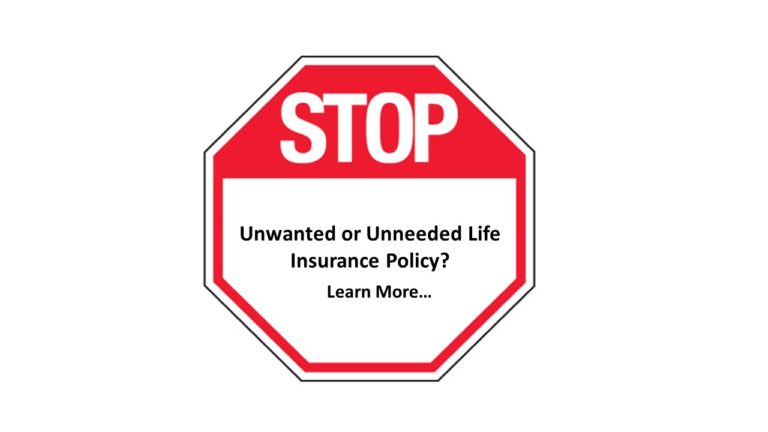There is no consensus on the definition of a fiduciary these days. Nor is there agreement on who should be held to a fiduciary standard. Suffice it to say that all professionals should be held to the standards of a fiduciary.
There are many differing views about the most effective way to help and protect consumers from abuse. I am not convinced that additional legislation will help determine if an advisor has a client’s best interest in mind. Can we really regulate intent or unethical people from acting unethically? Ethical professionals act ethically without checking the definition first.
A fiduciary relationship applies to any situation where one person justifiably places confidence and trust in someone else and seeks that person’s help or advice about something meaningful and important. Fiduciary responsibility is one of the most revered and powerful aspects of being a life insurance professionals. Having this responsibility requires us to act in the best interest of our clients at all times.
Is it reasonable to expect that we can regulate intent or regulate that unethical people will act ethically? Common sense tells us they will find a way around these rules.
Without doubt, there are unethical financial advisors just as there are unethical insurance agents, stock brokers, nurses, general contractors, drug manufacturers, surgeons and attorneys. The list goes on and on. There are unethical people in every profession and they typically don’t check the current fiduciary standard definitions before preying on consumers. They act unethically because it may be their nature to do so. Attempting to regulate this seems like nothing more than a litigation attorney’s dream come true.
Consumers don’t want to get bogged down in litigation at 70 years old, that’s for sure. Most of my clients do not want to be caught up in litigation and contention. There are ways to determine if a financial advisor has a reputation of acting in a fiduciary capacity. Spending a little time in this regard is time well spent. The goal is to avoid unethical people by spotting them first.
Complaints is one way to gain insight about the reputation of a professional. If complaints about an advisor are chronic and from multiple consumers, this is usually a red flag, worthy of caution and further investigation. Are there complaints filed at the local, state and federal levels against an advisor? If so, how many? Does the person maintain good relationships with partners such as insurance companies or former employers? In my experience, I have found that most advisors and insurance professionals do everything possible to represent the best interest of their clients. Most professionals are willing to provide names of other clients and other professionals such as attorneys and CPAs who will report honestly when asked. I encourage my prospective clients to do an exhaustive search. Deep searches should be welcome by professionals working in the best interest of their clients.
A pattern of behavior should emerge about a person, one way or another. Look for red flags and take note when you encounter them.
What Are Fee-Only Advisors? Fee only advisory firms are compensated only from fees paid by their clients. They accept no soft dollars, no commission sharing, weekend getaways, notepads, playoff tickets to events, etc. This should be promoted and stated in their fee contract where everything is transparent and disclosed. They will not sell or recommend products, participate in any kind of fee sharing arrangement, or make referrals. The Fiduciary – Advisor Best Interest Standard – Can it Work for You?
To get purely objective advice, consumers must pay fees to fee only advisors who accept nothing other than fees from their clients. However, I do believe that with a reasonable amount of front-end due diligence, most people are quite capable of finding the good eggs in the financial services world. Earning an impeccable reputation takes a long time. There are many reliable ways to validate a person’s reputation.
There are 2000 total billable hours in a professional’s year. When advisors bill $200 per hour for 50 weeks, 8 hours per day, that generates a maximum of $400,000 of gross annual revenue. With breaks, vacations, sick days and personal days, 1500 billable hours is more reasonable. But overwhelming data tells us that people will NOT pay $200 per hour or $50 for a 15 minute phone call. They will not pay $10,000 for an initial assessment of their financial and investment goals and objectives. Additionally, there are other fees to review current portfolios and fees for working with other professionals on the team. To boot, most people will be hard pressed to find a fee-only advisor at $200 per hour. Don’t be surprised to see hourly rates starting at $300 per hour.
Finally, there are annual recurring fees to manage the plan and provide ongoing service. To run a successful fee only practice, the advisor will incur expenses for employees, rent, phones, taxes, insurance, equipment and supplies. The advisors have to allocate and change time for customer acquisition and client retention. These costs cannot be billed to existing clients and these tasks will further reduce the gross number of billable hours. The net income for most of these advisors is too low, resulting in an unsustainable model.
Ask For References.
Is it possible to know if a financial services professional will act ethically and have your best interest at heart? I believe it is. To determine if an advisor is ethical and meets a fiduciary standard, contacting their existing clients is helpful. I suggest you check out their experience, existing or past complaints, their references and your instincts. With a little bit of due diligence, relying on a combination of these options will serve you best.
Also published on Medium.







